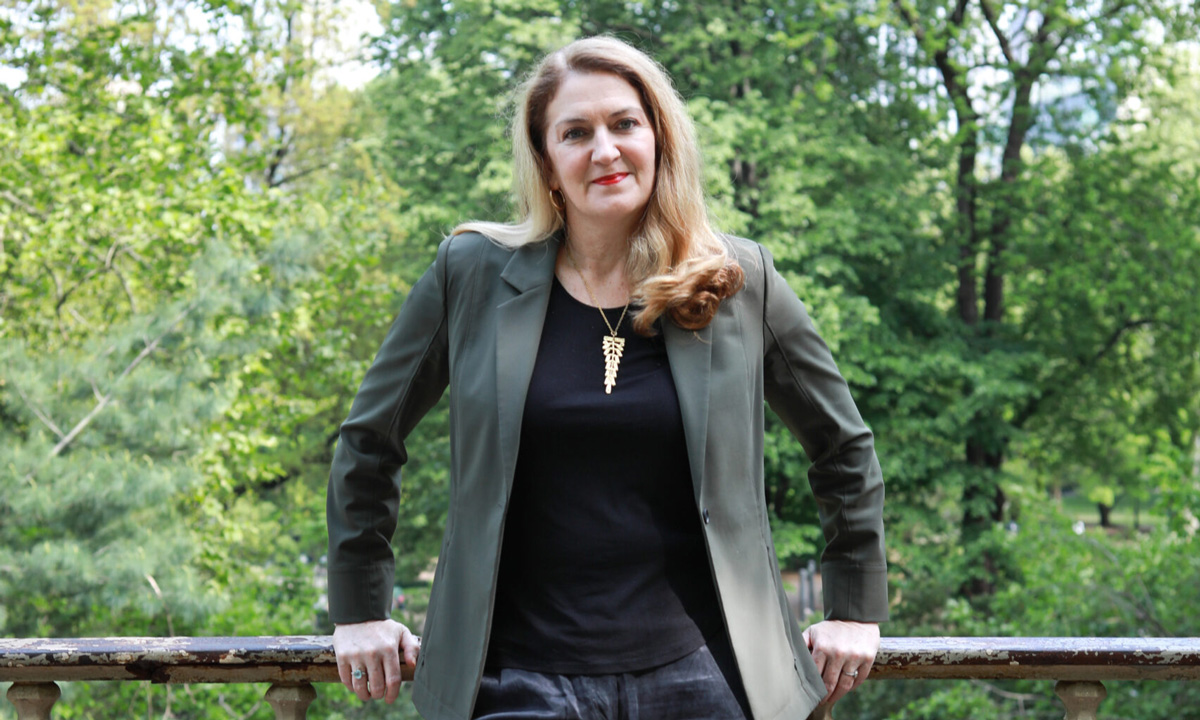Citing Free Speech Violations, Judge Reinstates NYC Parent to Ed. Council
A Manhattan parent was removed from her district’s council for “derogatory” conduct, but a new ruling says her free speech rights were stifled.

Get stories like this delivered straight to your inbox. Sign up for The 74 Newsletter
A federal judge ruled Tuesday a controversial Manhattan parent leader who was removed from a New York City education council for making disparaging comments about a student must be reinstated, finding her free speech rights were violated.
Maud Maron, who New York City Schools removed for “derogatory conduct” in June, can now resume her post on lower Manhattan’s coveted District 2 council. She has also been criticized for making anti-transgender comments against students.
In her ruling, federal judge Diane Gujarati also deemed the New York City Department of Education’s anti-harassment policy — which was used to remove Maron — “chilled … expression” and likely violates the First Amendment because of its vague language.
The policy, D-210, is so unclear that it prevents “a person of ordinary intelligence – before such person is subject to investigation” from understanding what conduct is prohibited, the judge wrote.
Schools Chancellor David Banks removed Maron for comments made in the New York Post in which she called an anonymous Stuyvesant High School student author a “coward” and accused them of “Jew hatred” for an op-ed accusing Israel of genocide in Palestine in the student paper.
In December, a 74 investigation revealed Maron also said in a private chat that, “there is no such thing as trans kids,” among other disparaging remarks. In response, Banks called Maron’s behavior “despicable” but did not include the anti-trans comments in documents outlining her removal.
In a text, Maron told The 74 Wednesday she was reinstated because, “free speech still means something in this country. The people who voted for me won today because they were also deprived of their voice by the Chancellor’s unconstitutional decision.”
The judge’s decision was issued after Maron and two other parents sued the Department of Education, the education council for District 14 and its leadership for allegedly stifling their speech. Gujarti’s decision granted an injunction to stop the DOE from enforcing the anti-discrimination policy via removing council members. Their case is ongoing.
Department of Education officials said Gujarati’s decision makes it more difficult to safeguard children.
“We are disappointed by a ruling that limits our ability to protect students from harmful conduct by parent leaders. Even prior to the court’s ruling, we began reviewing the applicable Chancellor’s regulation and are preparing to propose revisions and initiate our public engagement process,” said spokesman Nathaniel Styer.
The department, Styer added, is reviewing the ruling for “next steps” and will continue to support district councils in complying with the law.
Gujarati’s ruling did not call for the reinstatement of Tajh Sutton, who is the only other parent to be removed from a district council post after a D-210 investigation, because it is a separate case. Gujarati’s ruling stated that there is no proper request before the Court to “identically extend” Maron’s relief to Sutton and therefore “is not addressed herein.”
Sutton, formerly president of Williamsburg’s District 14 council, was removed after their official X account posted a toolkit for a student walkout for a ceasefire in Gaza. DOE officials said the materials were “perceived by many community members as anti-Israel and antisemitic.”
As also reported by the New York Times, Sutton moved her district’s meetings online to limit threats – which included being mailed an envelope of human feces and death threats – which the department later said violated open meeting laws. CEC 14’s official X account also blocked Maron. Both actions were categorized in Gujarati’s ruling as limiting free speech.
Ultimately, “the judge upheld the right to free speech even if that speech is offensive,” said David Bloomfield, former DOE counsel and professor of education law with Brooklyn College and the City University of New York Graduate Center.
He added the ruling doesn’t justify the “odious” statements made, rather their right to be said in the first place, and that the system likely knew this was a possibility but would “rather be slapped down by a court than allow [Maron’s] behavior to persist.”
“The First Amendment guarantees a marketplace of ideas,” Bloomfield said. “When the government intrudes on that, it’s hard to defend.”
Get stories like these delivered straight to your inbox. Sign up for The 74 Newsletter

;)
